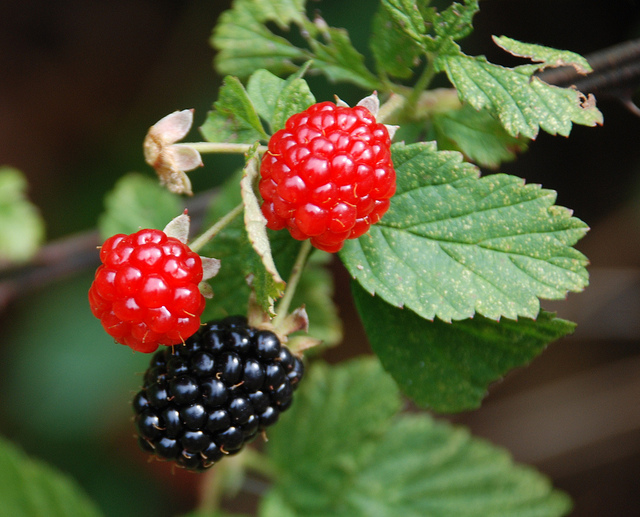“Christians still read the Bible strangely. We read the Bible as if we were the point, as though we are not, or never were, the Gentiles” (Willie Jennings).
Is that ever the truth.
The more-often-than-not meaning of 15:6 is one of those strange readings, “Whoever does not abide in me is thrown away like a branch and withers; such branches are gathered, thrown into the fire, and burned.” You don’t abide in me? Well, then, you are cut off, discarded. And if that were not enough, let’s be sure to throw you into the furnace of hell for good measure.
As if Jesus’ words are a rationale for judgment. As if Jesus’ words justify that we’ve always been a part of the “in” crowd. As if Jesus had only us in mind. We are quite accomplished when it comes to judgment — so quick to determine who’s in and who’s out. And we seem to get better at it all the time.
We are not the point. The fact is, the community for which John was written was indeed thrown away, thrown out — like the man born blind (9:34). Verse 6 is not a verse of condemnation because that is not what Jesus came to do (3:17). Rather, it is a statement of life. Without connection to a life source, abundant life is not possible.
The image of the vine introduces the last “I AM” statement with a predicate nominative in the Gospel of John. Why? Why this image here and now, at this point in the narrative? Preaching this text should ask this question. Twice Jesus will identify himself as the vine, first, as the true vine (15:1) and then as “I AM the vine” (15:5). The image follows on the heels of “do as the Father commanded me” (14:31), so the disciples may very well be wondering what might that be and how do we do it? The image of the vine offers a picture by which the disciples may see themselves as able to do as commanded because of their connection to the vine. To do the commandments means to bear fruit. Jesus first unpacks this image as it describes his relationship with his Father before he moves to how the image might portray his relationship with the disciples. This is key for the mutual abiding at stake between Jesus, the Father, and the disciples. Jesus is the vine, “my Father” is the vine grower. Like any good vine grower, the Father tends the vine with care, pruning where necessary so that it bears as much fruit as possible (15:16). At the forefront of this image is the theme of dependence. The vine needs the vine grower as much as the vine grower needs the vine. The vine needs the vine grower for its optimal growth and production, even its abundance. It will produce more fruit, fruit in abundance, if cared for. The vine grower needs the vine to produce, to make abundance possible for sustenance and life. The mutuality assumed in this image is essential especially at this point in the story. Jesus knows what’s next. The Farewell Discourse is all about leaving his disciples with words of comfort and hope in the midst of troubled hearts and worried souls. Why this image here and now?
Why? Because it is an image that intimates profound dependence. Profound reliance. Because life is nothing without belonging, without intimacy, without relationship.
How can you bear fruit? How can you imagine being beyond yourself? How can you realize your potential if you have no grounding, no sense of origin, no affirmation of possibility outside yourself?
The bearing of fruit depends on dependence. It depends on connection. It depends on origin. It depends on belonging. As soon as you think you can produce anything from the basis of your own sovereignty, from your own efforts, from your own sense of independence, think about it. What kind of fruit will that be?
Because bearing fruit has everything to do with who you are in relationship. I wonder if this is what we tend to forget or ignore. That the manifestations of our faith are not individual expressions of our theological commitments and convictions but are deeply lodged in and arise from the communities of our lives. That there is truncated potential for faith embodied if we do not realize that the bearing fruit of our faith is premised on dependence.
I fear there is a fear of bearing fruit. And that fear has many levels. Because once we bear fruit, we lose control. We chance exposure. Others will be able to see on what or whom rely; in what and in whom we locate and lodge our strength.
And once we’re out there? Well, it’s awfully hard to take it back. Impossible, actually. And others are then free to pick and choose the fruit they preference, like perusing the options at a farmer’s market or in the produce section in the grocery store.
Bearing fruit is risky business. It will reveal who you are and on whom and what you depend. It will expose your lack of self-sufficiency. It will show others that there is no other way to be but to be dependent. Many will think it’s weakness. Many will think the ties should be broken. Many will think that being cut off is beneficial because it will result in some sort of self-actualized and admirable autonomy.
But you know different. And that’s what needs to be preached.
Karoline

